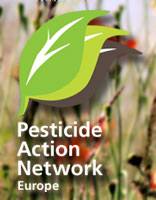1st March 2011
Brussels
European Food Standards Agency chooses industry studies over independent science
The newly published guidance on the use of science in pesticide approvals by European Food Standards Agency (EFSA)[1] downgrades work by independent scientists in favour of industry studies. EFSA classifies good laboratory practice[2] (GLP) studies by industry as having the highest level of reliability; research carried out by independent scientists will be classified lower.
The new classification is based on a study from 1997[3] published in an industry owned journal and authored by employees of BASF, which describes itself as “the world’s leading chemical company”. Their findings classify industry studies based on Organisation for Economic Cooperation and Development (OECD)/GLP-type guidelines as ‘reliable without restriction’, and non-OECD/GLP studies (usual in independent science) as less reliable, or even as unreliable. Criteria for reliability are derived from a non peer-reviewed article by a spokesman of the industry lobby group, the American Chemistry Council (Becker, 2009 ).
EFSA claims to have been attempting to “pragmatically integrate best practices in evidence synthesis with the structure of existing Guidance documents to avoid unnecessarily increasing the effort needed to prepare and appraise dossiers.”
Dr Hans Muilerman of PAN-Europe said: “It is unacceptable that EFSA keeps favouring industry tests and undermining a democratically established law. The Parliament and Council must reject the guideline and re-open the consultation, taking on board truly independent scientific advice.”
Vito A. Buonsante, Health and Environment lawyer at ClientEarth, said: "European citizens expect independent studies from renowned scientists will be considered in assessments of chemicals they might be exposed to. This guidance throws a shadow on the independence of the scientific advice that EFSA is supposed to provide.”
The European Parliament and Council, while developing the new Regulation on pesticides, decided to include independent scientific outputs in order to guarantee that the negative effects from toxic chemicals documented in the scientific literature would be taken into account when deciding if a pesticide could be used in the food we eat.
Up to now, independent science has been seen as being of limited use by regulators, who generally ignore it. However, several reviews that compare industry tests and similar independent studies show that industry studies are much more likely to demonstrate a favourable outcome for industry products. Taking into account independent science would balance industry tests and possibly uncover manipulation.
— ENDS —
Background notes:
[1] Submission of scientific peer-reviewed open literature for the approval of pesticide active substances under Regulation (EC) No 1107/2009, EFSA Journal 2011;9(2):2092 (link).
[2] GLP was instituted in the 1980s as a means of ending industry fraud in the testing of toxic substances. It is a management system that specifies how experiments should be carried out and recorded. It is not a guarantee of ‘good science’. See UNDP/World Bank/World Health Organisation (WHO). 2001. Good Laboratory Practice (GLP). Geneva, Switzerland.
[3] H.-J. KLIMISCH, M. ANDREAE, AND U. TILLMANN, A Systematic Approach for Evaluating the Quality of Experimental Toxicological and Ecotoxicological Data, REGULATORY TOXICOLOGY AND PHARMACOLOGY 25, 1–5 (1997)
Richard A. Becker American Chemistry Council, Erik R. Janus Crop Life America, Russell D.White American Petroleum Institute, Francis H. Kruszewski Soap and Detergent Association, Robert E. Brackett
Grocery Manufacturers Association, Good Laboratory Practices and Safety Assessments, Volume 117 | number 11 | November 2009 • Environmental Health Perspectives.
Use of science in risk assessment of pesticides
ClientEarth is an environmental law organisation working in the public interest. Based in Europe and operating globally, we address issues including deforestation, energy efficiency, biodiversity protection, and the transparency and enforcement of environmental law. Media contact: +44 (0) 203 030 5951
For further information please contact:
Hans Muilerman, PAN Europe
Tel: +31 (0)6-55807255, hans@pan-europe.info.
< Back


